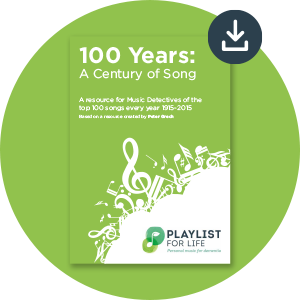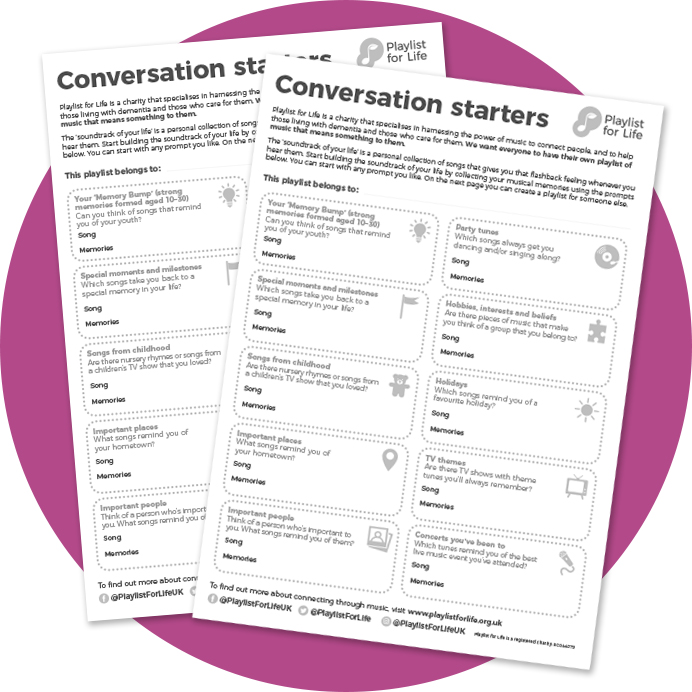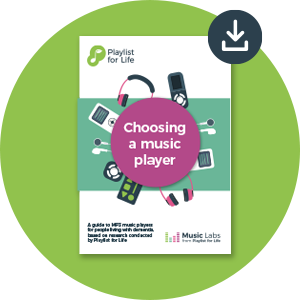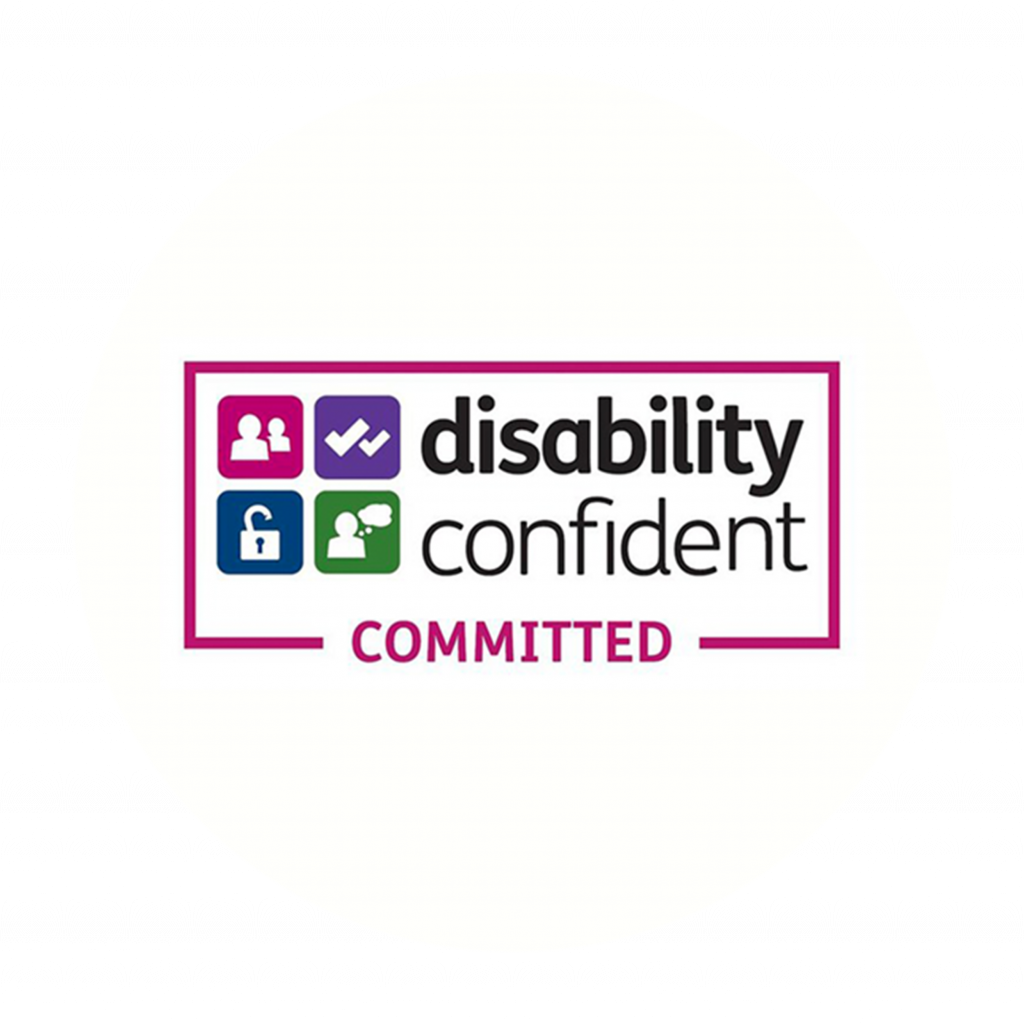Personalised playlists for wellbeing
Music can have multiple benefits for our mental health and studies have shown that it can improve the wellbeing of people living with dementia. Personally meaningful music is shown to have multiple benefits for our overall health and wellbeing.
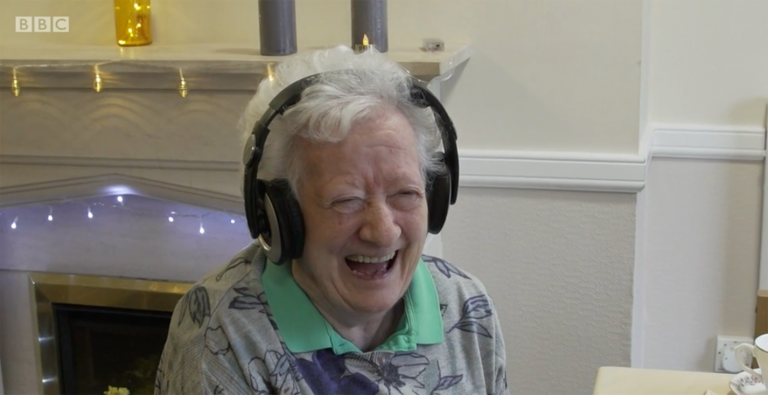
In 2018 music helped bring about a 60% drop in the use of sedative drugs at Lillyburn Care Home, proving the powerful effect personalised playlists had on residents’ moods.
After introducing playlists into dementia care, the GPs who work with the home were so impressed with results that they started entering playlists on the residents’ medical records. Now, staff at Lillyburn will reach for music before medicine.
The BBC visited Lillyburn to meet the staff and residents to find out more about the power of personalised playlists. They filmed with resident Lorna, whose smile and laughter proves that you can still be happy and spread joy while living with dementia. You can watch the BBC report here.
In September 2019, the World Health Organisation undertook a major study investigating the evidence for the health benefits of the arts. A section on dementia found evidence of multiple specific benefits including: reducing anxiety and depression; supporting cognition, speech and memory; reducing the need for antipsychotic drugs, and fewer and shorter stays in hospital.
If you are living with dementia, or care for a loved one who does, read on for our top tips on getting the best out of a personalised playlist.
When to listen
Listen together
Spending time listening to music with a loved one, tracking down the right songs, is a great way to start musical conversations and explore the memories attached to personally meaningful music.
Respite
If you live with dementia, or are caring for a loved one, a personalised playlist can offer respite when time out is needed to relax. Make sure you are settled comfortably, put the music on, and have a cup of tea while you listen.
Preparation
Research shows that listening to a personalised playlist half an hour before something difficult – like bathtime, getting dressed, or in the evening – can make things easier.

Music rewired me. Music enabled me to get back in connection with this hobby I'd had. I've drawn and painted since I was 5, but around the time of my Alzheimer's diagnosis I seemed to lose interest completely. I knew that music was reputed to have a therapeutic benefit to people with Alzheimer's Disease, and the theory is you should listen to the music you grew up with. I'm a 60s kid, and I sat and listened to 1960s music for two weeks - almost by magic, my desire to paint and draw returned.
Willy Gilder
How to listen
Positive reactions
Test the songs you have added to your playlist. Make sure you look for subtle positive signs like toe or finger-tapping, in addition to smiles or positive vocal reactions.
On the go
Remember to take your playlist with you when you’re leaving the house, as you never know when you may need it.
Help getting started
Our fully trained Helpline team can help you with tracking down personally meaningful music and give advice on making and listening to a playlist. Book a call here.

How do I get started?
Our website has lots of free resources to help you at every stage of your playlist journey, whether you’re exploring your own playlist or making one for someone else. Visit our Resources page to find out more.

